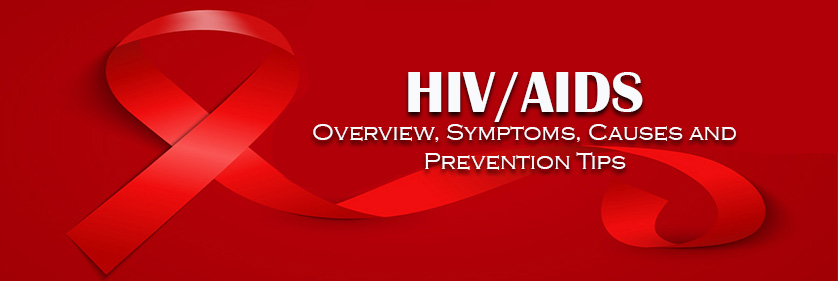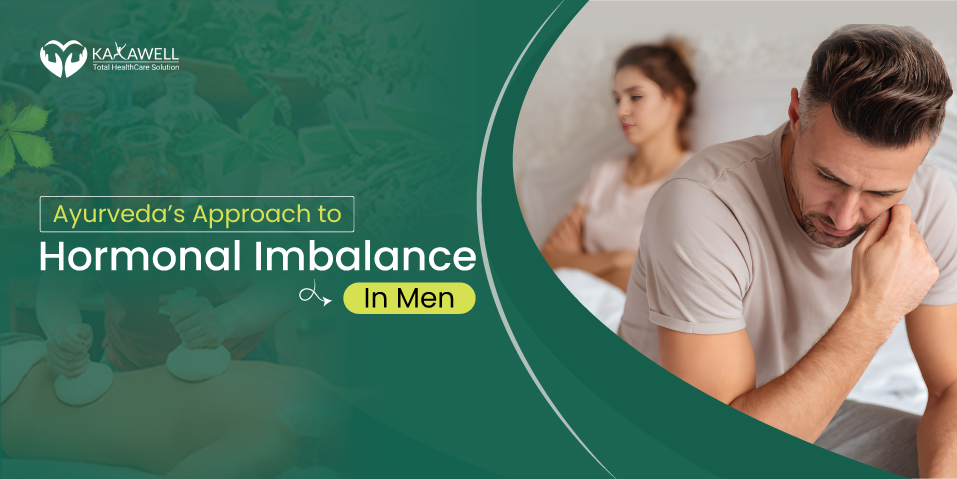HIV/AIDS-Overview, Symptoms, Causes and Prevention Tips
Overview
Acquired immunodeficiency syndrome (AIDS) is a chronic disease caused by the Human Immunodeficiency Virus (HIV) which is potentially life-threatening. HIV interferes with your body’s ability to combat infection and disease by weakening your immune system, HIV interferes with your body’s ability to fight infection and disease. Lets discuss about the HIV Symptoms, its causes and the prevention tips of HIV AIDS in detail.
HIV is a sexually transmitted infection (STI). This can also be spread during pregnancy, childbirth or breast-feeding through contact with contaminated blood, or from mother to infant. It can take years without treatment before HIV weakens the immune system to the point that you have AIDS.
HIV Symptoms
HIV and AIDS signs differ, depending on the stage of infection.
Primary infection
About two to four weeks the virus reaches the body, some people infected with HIV experience a flu-like illness. This illness can last for a few weeks, known as primary HIV infection. Possible symptoms and signs may include:
- Fever
- Headache
- Muscle aches and joint pain
- Rash
- Diarrhoea
- Night sweats
- Sore throat and painful mouth sores
- Swollen lymph glands, especially on the neck
- Weight loss
- Cough
Clinical latent infection (Chronic HIV)
HIV is still present in the body and in white blood cells at this phase of infection. But during this period, many people do not have any signs of illness.
Read Also:Coronaviruses: Symptoms, Treatments, And Prevention
If you are not getting antiretroviral therapy (ART) This stage will last for several years. Some people experience more serious illness much earlier.
Symptomatic HIV infection
When the virus begins to spread and kill your immune cells — the cells in your body that help fend off germs — you can develop mild infections or chronic signs and symptoms such as:
- High temperature
- Fatigue
- Swollen lymph nodes — frequently one of the earliest symptoms of HIV infection
- Diarrhoea
- Loss of weight
- Oral yeast infection
- Shingles
- Pneumonia
When to see a doctor
If you think you may have been diagnosed with HIV or are at risk of contracting the virus, see your doctor as soon as possible.
Causes of HIV AIDS
The infection causes HIV. This may spread during pregnancy, childbirth or breast-feeding, by sexual contact or blood, or from mother to kid.
How does HIV become AIDS?
HIV kills cells of CD4 T— white blood cells that play a major role in helping your body fight disease. The smaller you have CD4 T cells, the weaker your immune system will get.
You will have an HIV infection, with few or no symptoms, for years before it turns into AIDS. AIDS is diagnosed when the number of CD4 T cells falls below 195 or when you have an AIDS-defining condition, such as serious infection or cancer.
How HIV spreads
Infected blood, semen or vaginal secretions have to touch the body to become infected with HIV. That can happen in several ways:
- By having sex: When you have vaginal, anal or oral sex with an infected person whose blood, semen or vaginal secretions will enter into your body you may become infected. The virus may enter your body through mouth sores or tiny tears which sometimes develop during sexual activity in the rectum or vagina.
- By sharing needles: Sharing contaminated IV drug paraphernalia (needles and syringes) puts you at high risk of HIV and other infectious diseases including hepatitis.
- From blood transfusions: The virus in some cases can be spread by blood transfusions. The blood supply of HIV antibodies is now screened by American hospitals and blood banks, so this risk is very small.
- In pregnancy or delivery or through breast-feeding: Infected mothers may pass the virus on to their children. During pregnancy, mothers who are HIV-positive and seek treatment for the infection may significantly reduce the risk to their children.
Read Also:Zika virus-overview, Symptoms, Causes, Risk Factor and Prevention
Complications
HIV infection weakens your immune system, and makes you much more likely to develop other infections and many kinds of cancers.
Other complications
- Wasting syndrome: Untreated HIV/AIDS can cause significant weight loss, often accompanied by diarrhoea, chronic weakness and fever.
- Kidney disease: HIV-associated nephropathy (HIVAN) is an inflammation of the tiny filters in your kidneys that remove excess fluid and wastes from your blood and pass them to your urine. It most often affects blacks or Hispanic people.
- Liver disease: Liver disease is also a major complication, especially in people who also have hepatitis B or hepatitis C.
Prevention Tips of HIV AIDS
There is no vaccine against HIV infection and there is no treatment for AIDS. But you can defend yourself from infection and others
Read Also:Abortion With Septic Shock- Types, Symptoms, Causes And Treatment
To help prevent HIV from spreading:
- Use a new condom every time you have sex: Every time you are having anal or vaginal sex, use a new condom. Women can use a female condom. If using a lubricant, make sure it’s water-based. Oil-based lubricants can weaken condoms and cause them to break. During oral sex use a no lubricated, cut-open condom or a dental dam — a piece of medical-grade latex.
- Tell your sexual partners if you have HIV: It’s important to tell all your current and past sexual partners that you’re HIV-positive. They’ll need to be tested.
- Use a clean needle: If you use a needle to inject drugs, make sure it’s sterile and don’t share it. Take advantage of needle-exchange programs in your community. Consider seeking help for your drug use.
- If you’re pregnant, get medical care right away. If you’re HIV-positive, you may pass the infection to your baby. But if you receive treatment during pregnancy, you can significantly cut your baby’s risk.
- Consider male circumcision: There’s evidence that male circumcision can help reduce the risk of getting HIV infection.



